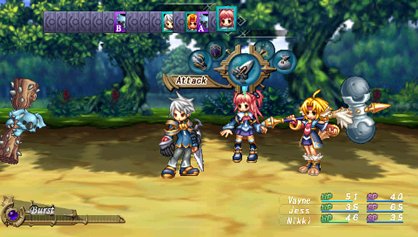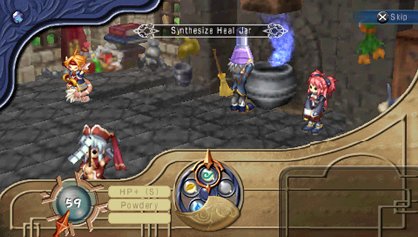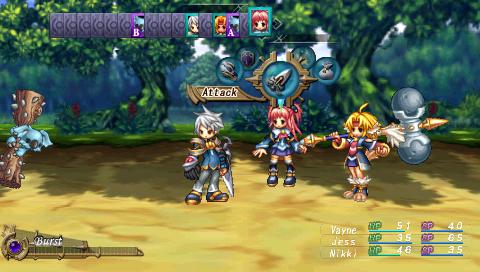GamesRadar+ Verdict
Pros
- +
Strangely alluring
- +
Battles
- +
later in the game
- +
School atmosphere is cute
Cons
- -
Extremely same-y
- -
Tedious synthesizing
- -
Sloooow start
Why you can trust GamesRadar+
[Editor's note: Eagle-eyed RPG hounds may notice this is very similar to the text of our review for Mana Khemia: Alchemists of Al-Revis on PS2. That's because despite the different titles, this isthe exact same game with a few additions, which we'll note.]
If you've even bothered to read this review, we're going to go ahead andrecommend Mana Khemia. Your interest is probably due to past run-ins with Gust/NIS collaborations (Atelier Iris, Ar tonelico) and if it's more of the same you're after, here's another heaping portion to tide you over until the next super-cute, anime-soaked, cliche-ridden JPRG lands on PS2.
It all starts with the same stock characters we've seen countless times - amnesiac boy with an ominous past, clumsily cute gal pal, adventurous blowhard, hyperactive floozy etc. The twist is they're all in school, so most of the gameplay revolves around completing assignments, chatting with friends and synthesizing new items for later use. Synthesis was interesting in the first Iris, and even in the second, but after a third Iris and tonelico, the idea of blending countless items together has started to lose its appeal. It no longer feels creative; instead it's an obnoxious middleman that you have no choice but to employ. Who wants to make the sword when you can buy one down the hall? Hope you're willing to spend 30-40 hours searching for ingredients and mixing them together in varying degrees to produce slightly different results.

To further complicate the process, item synthesis has now been integrated with leveling up. Fighting monsters (in traditional you-go/I-go style) nets you money and XP, but the latter doesn't do anything on its own. You can fight endlessly and never gain one level. Instead you must forge items from your Grow Book (think FFX's sphere grid or XII's license board) to activate links between nodes. Each node has different attributes you purchase with your accumulated XP. It's yet another way of extending what was an already grinding process - leveling up your characters. Plus if you're missing ingredients you have to exit out, seek out the new items and head back to your special brewing pot at school. Tedious!

We value a solid battle system over anything else when it comes to RPGs. As long as that's sound, we're set for 30, 40, 100 hours of gameplay. Khemia's battles start off slow, dull and hard, but eventually they blossom into strategic power struggles. Your main three characters sit out front and act as the front line. Another three sit offscreen and play the support role, hopping in to finish combos or whatnot. If you're using your best skills, dealing a ton of damage and exploiting your enemy's elemental weaknesses, a Burst gauge will charge and enable you to pull off some supremely devastating combos. The meter's a hell of a lot harder to fill than tonelico or Iris 3, so when you do finally fill the bastard, it's a genuine accomplishment. Too bad it takes hours for this side of the battle system to appear.
More info
| Genre | Role Playing |
| Description | Student Alliance is an updated port of PS2's spiritual sequel to the Atelier Iris series, Mana Khemia: Alchemists of Al-Revis. Notable changes to the PSP version include faster loading times and an added multiplayer co-op mode. |
| Platform | "PSP" |
| US censor rating | "Everyone 10+" |
| UK censor rating | "" |
| Release date | 1 January 1970 (US), 1 January 1970 (UK) |
A fomer Executive Editor at GamesRadar, Brett also contributed content to many other Future gaming publications including Nintendo Power, PC Gamer and Official Xbox Magazine. Brett has worked at Capcom in several senior roles, is an experienced podcaster, and now works as a Senior Manager of Content Communications at PlayStation SIE.




